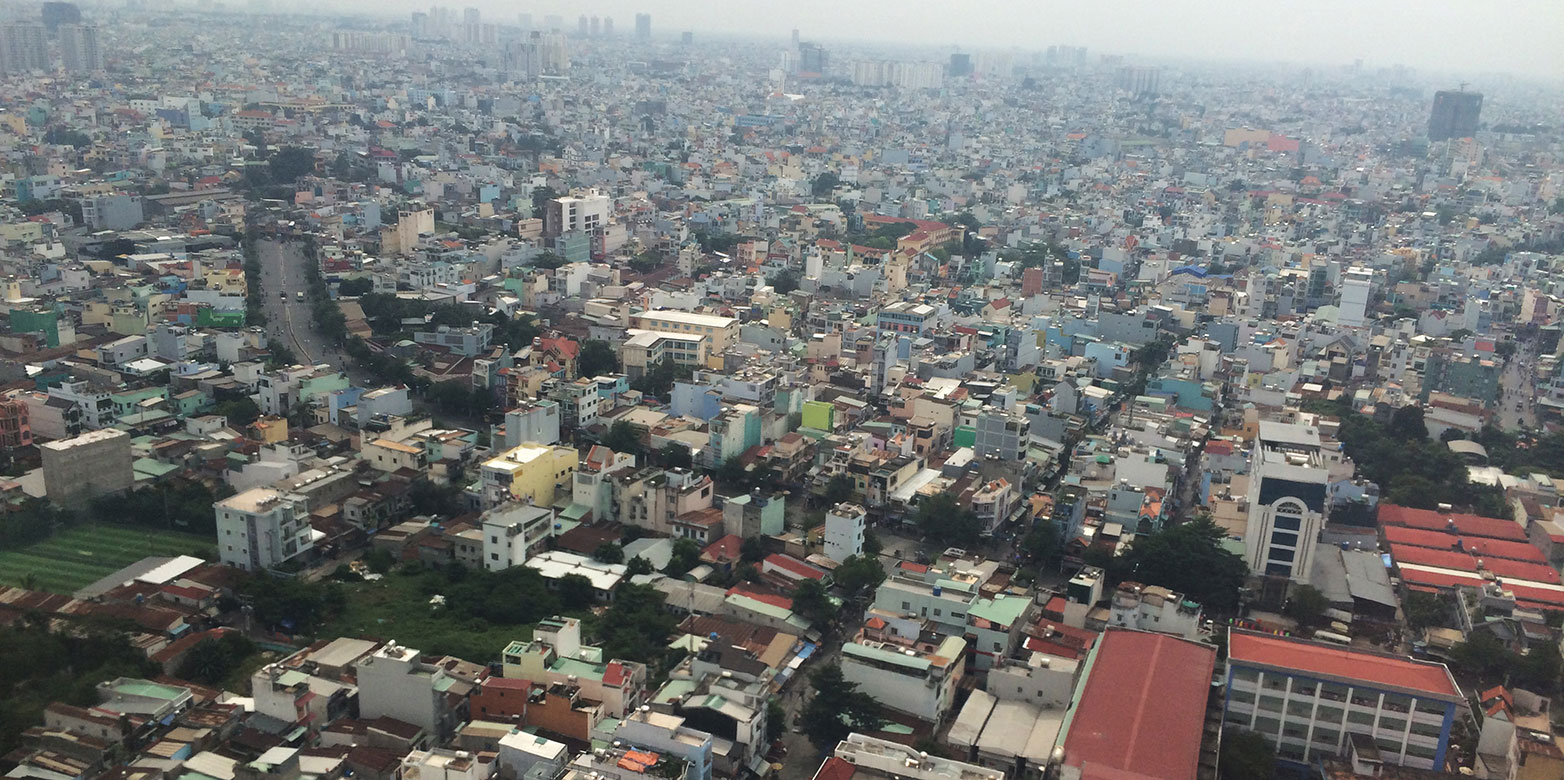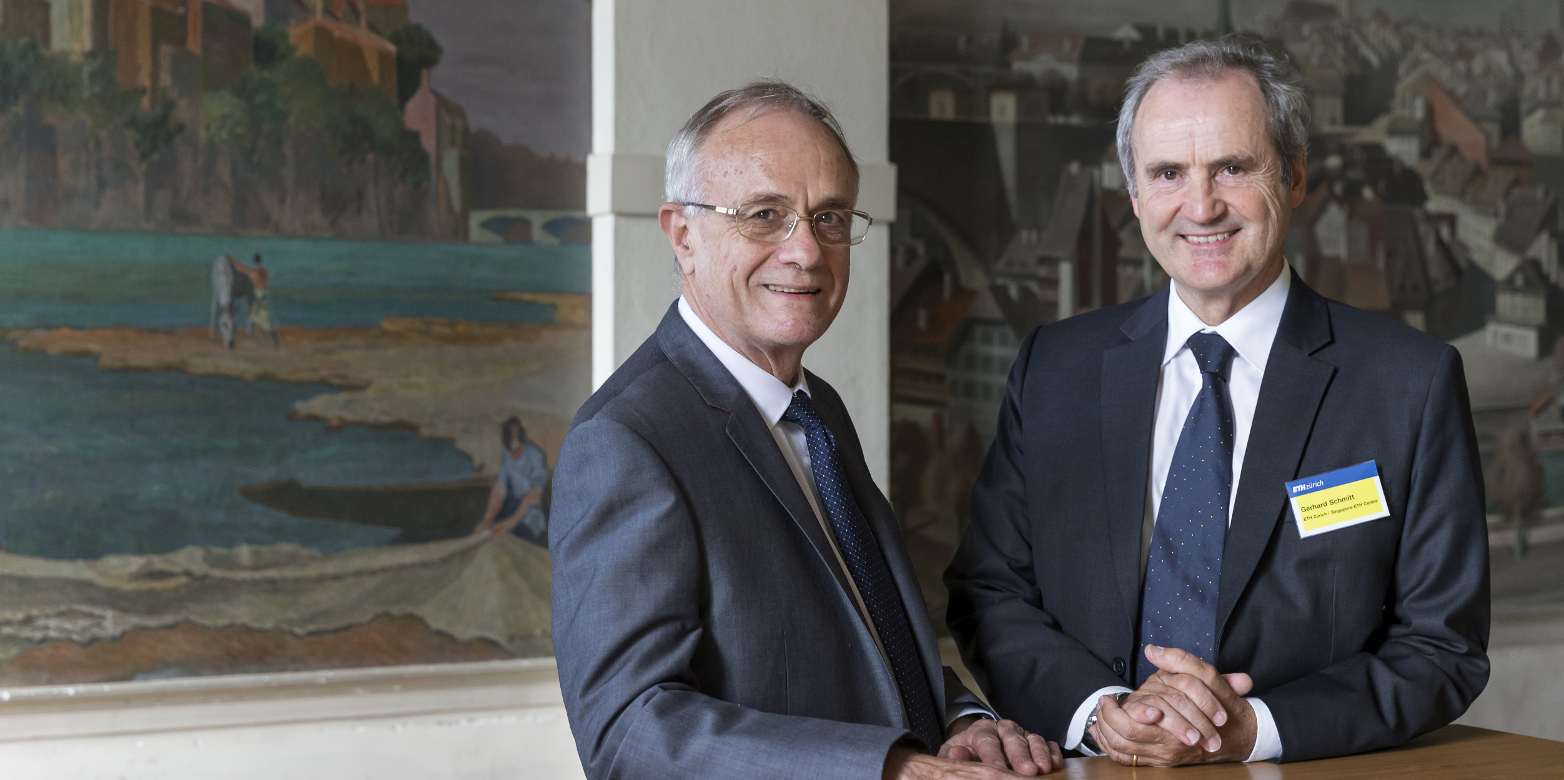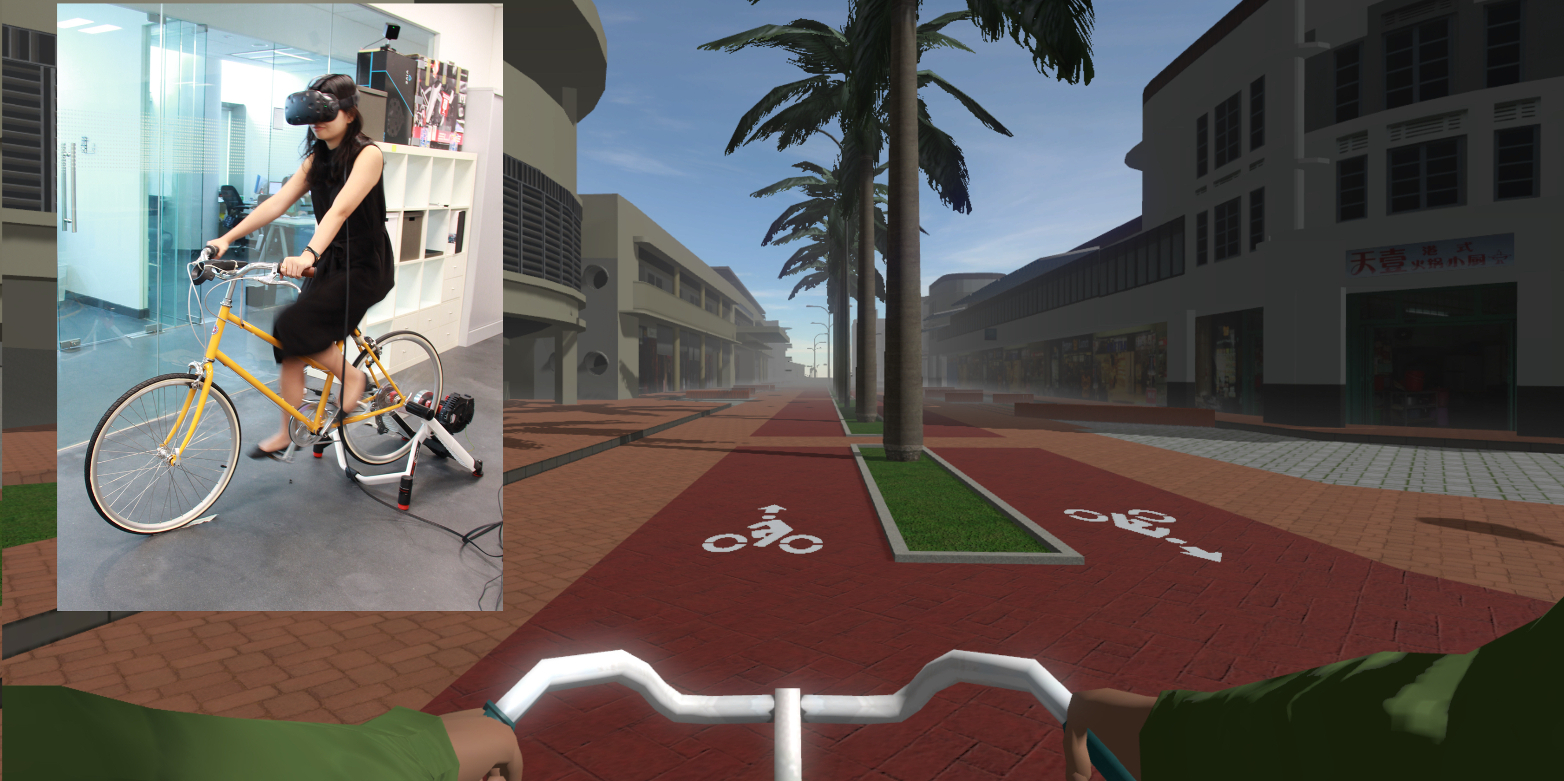Becoming the CERN of urban planning
The Future Cities Laboratory (FCL) in Singapore tackles concrete problems that will only become a reality in temperate climate zones such as Switzerland in the future. According to Peter Edwards, the outgoing director of the ETH hub in Asia, and Gerhard Schmitt, who is set to take over this post once again, this opens up opportunities to use expert knowledge to tackle challenges in metropolitan areas.

The scale is vast. A modern, multi-ethnic city state, still underdeveloped just 50 years ago, formed and grown rapidly since independence, now with 6 million inhabitants and double the population density of Zurich – and all this in a tropical climate in which physical limits are quickly reached: "Urgent questions are being asked in Singapore that are also relevant to central Europe," says Peter Edwards, ETH Professor of Ecology, who has been Director of the Singapore-ETH Centre (SEC) since 2013. After all, challenges such as climate change, ageing populations and energy and water supply are common to all growing urban systems.
Huge living lab
However, the pace, consistency and magnitude with which decisions are implemented in Singapore are alien to Switzerland. "The construction of cooperative housing, for example, doesn't just involve tens of thousands of units, but 1.2 million. So with clever, careful planning, the administration can generate considerable economies of scale," says Edwards. Furthermore, with its modern water supply and transition into a smart city in regard to energy efficiency, use of technology and quality of life, the city state has made real strides forward in its development since its foundation.
"Naturally, all this would have occurred at a slower pace in the developed, balance-oriented Swiss environment – largely with good reason," says Gerhard Schmitt, ETH Professor for Information Architecture. Schmitt was the founding director of the SEC in 2010 and ran the organisation for the first three years. He is now set to take the reins once again. "The SEC acts as a thriving scientific hub for ETH Zurich in Asia," he says. "The Centre is also Switzerland's central base for science policy for the whole of Asia and Oceania, an area with more than 4 billion people."
This also allows Swiss expertise to flow into Asia – for example, with the spin-off culture or the rooting of social participation in development: "The remarkably thorough planning carried out by the authorities in Singapore needs to be complemented by greater involvement from the population," says Schmitt. "The Swiss bottom-up culture can provide a good example for this."

Controlling the urban climate
Which of the urban planning lab's findings particularly impressed the outgoing SEC director? Above all, the fact that research can work with industry to quickly produce practical solutions. The key focus is on urban heat islands – cities even in moderate climate zones that are markedly warmer than the surrounding countryside. Every new building creates heat.
In the tropics, this can be dangerous. "There's no longer any doubt that temperature rises caused by human activity in tropical agglomerations increase precipitation," says Edwards. In reverse, this means that the urban climate can be controlled. The infrastructure must be designed so that the people living in the cities suffer less as a result of the climate. A prime example of this can be seen in the ideas about building cooling developed by ETH professors Hansjürg Leibundgut and Arno Schlüter, which were first tested on the Hönggerberg campus. Edwards: "In Singapore, this system currently clearly shows that the same cooling capacity can be generated with just a third of the energy used to date."
Solutions lie in urban development
Some cities in Asia already have populations of 60 million, and the UN forecasts that the continent's cities will be home to a further 1.2 billion people by 2050. "The solutions for a sustainable future for our planet lie in the cities," says Edwards. "This requires not only technological innovation, but also innovation in policy and governance. For us to have an impact, it will be important for our researchers to understand the political dimensions of their work."
In the future, cities will be controlled far more by people and machines working in tandem, says Schmitt. "The optimisation of this network is one of the issues that the FCL plans to explore during the coming years. The question of how urban systems can protect and promote the health of their inhabitants will also be a key focus of the research."
The Future Cities Laboratory's own network also needs to be strengthened. As a Swiss knowledge hub, it is already firmly established on the international stage. "But we shouldn't stop there – I want the FCL to become the CERN of urban planning. We need to intensify the research contacts and exchange of ideas between Switzerland, Singapore and researchers in many other countries and reinforce the existing networks in Zurich and Singapore. This will give us the strength we need to tackle the complex problems that lie ahead."

A new director for the SEC
After seven years, the Singapore-ETH Centre with its Future Cities Lab has grown into the largest integrated urban research centre of its kind, providing important stimuli for urban and regional planning in Switzerland and other countries. As of 1 October, Peter Edwards will step down from his post as Director after four years in the role and hand leadership of the Centre over to Gerhard Schmitt. Schmitt was a driving force behind the development of ETH's research presence in Singapore and led the Centre between 2010 and 2013.
